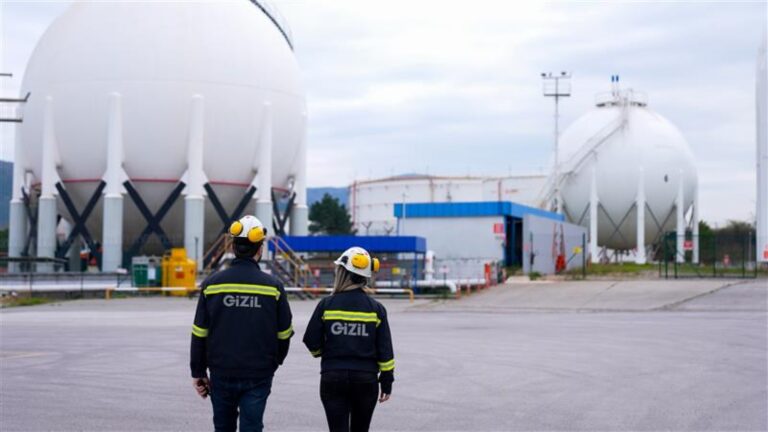
As distributors face mounting pressure to operate more efficiently, comply with evolving regulations, and reduce emissions, technology offers a powerful enabler of change. Digital tools not only streamline day-to-day operations but also provide a foundation for safety, resilience, and long-term competitiveness.
In this article, Gizil, an engineering-led technology company working across a wide range of industries, demonstrates how its Virtual Plant (VP) platform is helping fuel distributors unlock these benefits today while preparing for the future energy landscape.
The pressure on the liquid fuel distribution industry has never been higher. Stricter emissions rules and rising sustainability and efficiency demands are forcing operators to rethink how they work. Liquid fuels still play a central role in global energy security, but how they are stored, managed, and distributed needs to change.
That change is not just about introducing new fuel types. It is about transforming day-to-day operations. Digitalisation is not simply a buzzword here; it is a practical way to improve performance, cut emissions, and prepare infrastructure for the future.
Why go digital?
Fuel distributors are being pulled in many directions. Compliance requirements are growing, customers expect transparency, and operations need to run lean and safe. Old habits such as paper-based workflows, manual inspections, and site-dependent processes make it harder to keep up.
That is where digital transformation comes in. By digitising assets and workflows, distributors can reduce unnecessary travel, modernise infrastructure, and gain visibility across multiple sites. Having real-time plant data available remotely saves time and adds an extra layer of security.
Virtual plant: A practical digital twin
Digital twin technology is frequently seen as expensive and overly complex. Virtual Plant (VP) is designed to change that. Instead of relying on heavy CAD models, it uses laser-scanned point cloud data, making it accurate, scalable, and cost-effective. This is especially useful for brownfield terminals where documentation may be outdated. Virtual Plant provides:
- Digital asset and document management
- Remote visualisation to reduce site visits
- Maintenance and turnaround planning with safety in focus
- Integration with other systems such as SAP, CMMS and IoT systems.
- Gamified training modules for safer, faster onboarding
Why Virtual Plant matters
- Safer operations: Plan maintenance, shutdowns, and contractor activities virtually, reducing the need for personnel to spend time in hazardous zones.
- Reliable information: Create a single source of truth for all site data and documentation, ensuring accuracy across depots and preventing costly mistakes.
- Smarter collaboration: Enable remote access for engineers, regulators, and contractors, allowing faster decision-making and reducing delays in projects.
- Confidence in compliance: Simplify audits and ESG reporting by consolidating operational data, documents, and visuals into one accessible environment.
- Future-ready assets: Support transitions to new fuels or infrastructure upgrades by testing scenarios virtually before committing to physical changes.
Virtual Plant doesn’t just digitise infrastructure — it makes it safer, smarter, and more adaptable, giving fuel distributors the visibility and confidence they need to meet today’s demands and tomorrow’s opportunities.
Cutting emissions – boosting efficiency
Travel between terminals consumes both time and carbon budgets. With VP, teams can collaborate and plan remotely, going on-site only when it truly adds value. This leads to measurable cost savings, reduced Scope 1 and Scope 3 emissions, and more time spent on high-value tasks instead of travel logistics.
Keeping up with compliance and ESG
Regulations are becoming more complex every year. Having documents, images, and operational data in one place makes compliance easier and audits faster. VP helps simplify inspections and supports ESG reporting by adding transparency and reducing administrative workload.
Training the next generation
The workforce is changing rapidly. Experienced operators are retiring, and new staff need to get up to speed quickly, often without years of field exposure. VP bridges that gap with immersive 3D training environments, allowing new employees to learn layouts, processes, and safety rules virtually before setting foot on site.
This approach strengthens safety, preserves knowledge, and helps younger staff feel confident and engaged from the start.
Looking Ahead
Fuel distributors face a balancing act: keeping operations reliable, staying compliant, cutting emissions, and controlling costs. Digital transformation is a critical enabler of all these objectives.
Massive investments are not required to begin. What matters is starting with the right approach. Virtual Plant provides a clear and practical path that delivers quick results today while building resilience for tomorrow.
About Gizil
Gizil is an engineering-led technology company helping asset-heavy industries digitise their operations through its Virtual Plant platform. This SaaS-based digital twin is tailored for sectors such as fuel distribution, chemicals, and energy.
Virtual Plant turns terminals and depots into interactive 3D environments enriched with asset data, documents, and live insights. By reducing physical site visits, simplifying compliance, and enabling smarter planning, it helps organisations operate more efficiently and sustainably.
Image credit: Gizil
